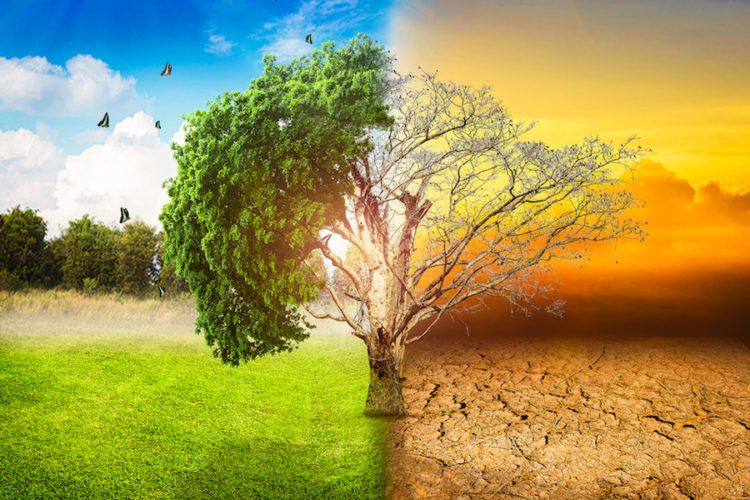Greenhouse gas (GHG) emissions and their effects on global warming have been steadily increasing since the pre-industrial era, on an upward trajectory that is largely due to demographic expansion and economic growth.
On a global scale, energy is the main source of polluting emissions, followed by forestry, agriculture and land use, industry, and the transport and construction sectors.
The effects of climate change are known: lower ecosystem productivity and reduced availability of water and food; the migratory movement imposed on the most vulnerable communities; the worsening of poverty; the increase in storms and other extreme weather events, the alteration of marine currents and, consequently, of weather patterns at the local scale, the increase in the average sea level and its effects on the coastline.
GHG emissions also have a huge impact on the health and well-being of human populations. It is estimated that the global impact of illness and premature death related to environmental pollution is already three times greater than that of AIDS, tuberculosis and malaria combined.
But the increase in GHG emissions that continues to occur despite international commitments, could translate into even more serious impacts, triggering the collapse of arctic ecosystems, coral reefs and the Amazon rainforest. These changes are irreversible and can jeopardize nature's ability to continue providing essential services such as food production, availability of clean water or soil fertility.
Climate change poses an obvious threat to global social and economic prosperity, and overall security in the world, and the responses require cooperation and an effective commitment between all countries.
The international priority will have to go through the reduction of fossil fuels and intelligent alternatives, mobilizing science, technology, industry, innovation, and society in general, in favor of an ecological and fair path. Everyone benefits from this transition: industry, the economy, employment, the planet and the environment.
In order to fulfill the Paris agreement and the decarbonization goals of the world economy, it is necessary to quickly give up fossil energy and avoid an increase in global temperature above 2°C (1.5°C would be the fairest target). To do so, global CO2 emissions will have to drop from 40% to 70% by 2050 and reach zero by 2100 (IPCC).
These goals are short and highly contested, imposing more demanding goals and their anticipation. It is the announced and desired end of fossil fuels, from which most CO2 emissions result, but greater global political commitment will be needed; it is essential that citizens continue to exert pressure and demand strict compliance with the decarbonization targets from the governments of their countries. Europe and the United States have recently announced a policy and strategic public investment agenda that represents an opportunity to intensify the ecological transition, supporting a consistent commitment to the deep systemic transformation of production, consumption, and lifestyles, respecting the limits of the planet. .
The world is increasingly governed by maximizing the flow of inputs from nature to keep up with the growing demand for food, energy, wood, with global trade increasing the geographical separation between supply and demand. Most indicators of the state of nature, whether monitored by natural and social scientists or by indigenous peoples and local communities, are in decline.
These indicators include the number and population size of wild species, the number of local varieties of domesticated species, the distinction of ecological communities, and the extent and integrity of many terrestrial and aquatic ecosystems. As a consequence, nature's ability to provide benefits has also diminished, including the environmental processes underlying human health and immaterial contributions to the quality of human life.
Portugal has a plan to combat climate change, with policy guidance and sectoral emission reduction targets to be developed in conjunction with sectors such as transport, energy, agriculture and forestry.
The country should strengthen its commitment to renewable energies, especially solar and wind, electric mobility, energy efficiency, sustainable construction, forest management, innovation of agricultural and forestry practices and options, in the management plans of the health in particular in cities, in the prevention of various pathologies associated with the climate, and in education.
It is urgent to implement the political agenda for sustainability that the citizens of the world demand: a bold and firm commitment to a green, circular and decarbonised economy.
European citizens are more aware than ever of the environmental and social crisis. They demand that their leaders understand the critical moment in history and that they respond to the climate emergency and the biodiversity crisis, building political solutions and acting in favor of peace, for the well-being and justice of peoples, and for the preservation of a planet that hosts an extraordinary diversity of life forms.
Author: Helena Freitas is a Professor at the University of Coimbra.
UNESCO Chair in Biodiversity and Conservation for Sustainable Development





















Comments